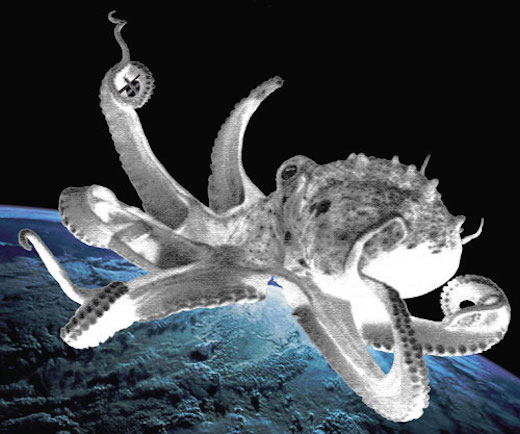I’m one of those poor fools with two email accounts. At some point in 2007, it seemed like a good idea to have one address for work and one for personal stuff, because…profit? The concrete advantage was not clear, but it sounded like something an organized person might do. Now I have two essentially interchangeable addresses, one at Gmail and one at the great-in-theory Apple domain me.com. I manage both addresses with Apple Mail, so I generally forget that I even have two Inboxes until one stops working. When Gmail stopped this weekend, I assumed I had run into a bug in the new Mac OS. Instead, I ran into the minor masterpiece of insinuation that is the subject of today’s Close Reading.
Tag Archives: google
Google Veterans’ Day image causes imaginary controversy

Google's logo from Veterans' Day. This is step one in my plan to convince people that my blog is actually Google. Step three is profit.
In the course of your Veterans’ Day celebrations—going to the bank, realizing from the sign on the front door that it was a holiday, going directly to the liquor store, experiencing a period of missing time, then coming back to some dude in a pointy helmet shouting “nein! nein!” from your headlock—you might have forgotten to check Google. Even if you did check the Google on Thursday, you might not have noticed that its special Veterans’ Day logo was, in fact, an Islamic crescent rising behind the American flag. That may be because the infiltration of Islam in American society is so pernicious that you never notice until it’s too late, or possibly because you have seen the letter “e” before. Either way, you have to agree that Google Veterans Day Controversy: American Flag, Islamic Crescent Moon Doodle Sparks Internet Outrage. That’s how Associated Content’s William Browning sees it, anyway. Props to Mike for the link.
Friday links! Masters and servants edition

Apparently Friedrich Nietzsche is the guest editor this week at latfh.com. Also, I'm not sure Rikki Kramp is this young man's given name.
As anyone who has read about the United States in a book will tell you, ours is a country founded on egalitarianism. Let the tottering empires of Europe labor under the notion of a permanent ruling class; America has no king, because America needs no king. Sure, certain of the exceptionally gifted among us will rise to power and prominence, and it’s only logical that those men and women keep their positions for long, illustrious careers. But even from the lofty heights of power they see us at eye level. Ours is not a culture in which a small elect view the rest of us as braying lambs, raised to numbly trot after the herd. No—we live free, with no shepherds to herd us to safety or slaughter. Or, um, maybe that’s totally how it is. Maybe the levers of American power are set hopelessly beyond the reach of any person of average heights, and we live at the mercy of forces beyond our control. Maybe the presidency really is a fifth column with its top higher than our eyes can see, and our only defense is a conglomeration of old families and wealthy industrialists trying desperately to trick us into right action before it’s too late. Both explanations—a nation of free men, a sad school play in which frightened children mumble words they dimly understand—seem equally possible. And either explanation is, after all, self-fulfilling. This week, Combat! blog presents evidence for both sides. Is America still operated by Americans? Or have we devolved into a kleptocracy in which corporate money and political aristocracy compete to see whose views they can make our own? More than most questions, this one depends on how you look at it.
Mark Cuban inadvertently reveals massive Twitter conspiracy

So, what, it's like a TV Guide or something?
The big news in news that covers the news is that robber baron of the DeBordian Spectacle Rupert Murdoch has threatened to opt out of Google, walling off all News Corp properties from the search engine’s webcrawlers and generally ensuring that nobody gets anything he makes for free. That’s cool. If Murdoch really thinks that the traffic driven to his various internet properties—which include WSJ.com, FoxNews.com and the purchased-in-a-manner-analogous-to-getting-wasted-and-going-home-with-a-fat-girl Myspace—isn’t worth the irritation of knowing that Google is indexing them for free, he’s welcome to hitch his wagon to Bing. As Weston Kosova of Newsweek sarcastically points out, people are totally going to search for “Sarah Palin teeth vagina” on Google, see what comes up, and then head on over to Bing to see if maybe News Corp has anything else. It’s a terrible idea if you intend to use the internet as a tool to disseminate your news reporting, but if you only see the internet as a way to advertise the other media outlets through which you disseminate your et cetera, it’s great. Murdoch’s problem with Google is that it doesn’t tell anyone about his products without also giving them a way to access them for free. His frustration captures the irony of the internet’s relationship to newspapers and television; it increases their circulation exponentially, while simultaneously making increased circulation almost valueless. It’s a real pickle, and it explains why, six months ago, every conventional news outlet in America couldn’t wait to tell us about Twitter.

